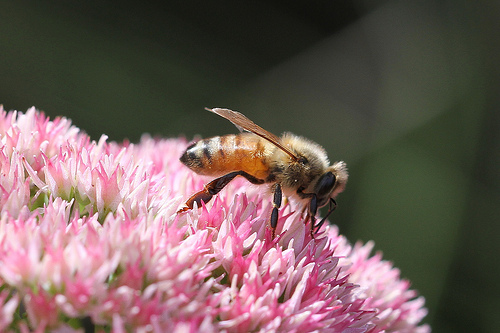Bees Be Dying

Photo by: Jim, the Photographer’s photos via Getty Images.
June 4, 2013
There recently has been a lot of concern about the declining bee population in Europe. It is believed that Neonicotinoid chemicals in pesticides have been harming bees, and a ban on the chemical has been proposed to the EU Commission.
Fifteen countries voted in favor of the ban on Neonicotinoid use, but 15 was not enough to form a qualified majority. However, according to EU Commission rules, the countries now have the option to impose a two year ban on Neonicotinoid use that cannot be opted out of. This has sparked debate about what is actually causing the decline in the populations of bees, and how it should be dealt with. The UK, which did not support the ban, argues that the science behind the proposal is inconclusive. Others argue that the parasitic varroa mite, combined with viruses, attack bees and hives. Those who believe that pesticides are directly affecting the bee population referenced studies that showed Neonicotinoids affected the abilities of hives to produce queen bees, and found that the pesticide damaged the brains of honey bees. It is also apparent that honey bees contribute to pollinating around one-third of the global crop production, showing just how much exposure they have to this pesticide. Regardless of the controversy, the EU Commission still plans to go forward with the two year ban.
The ban is set to begin on July 1, 2013, and end sometime in July, 2015. It will limit the use of Neonicotinoid based pesticide to crops that do not attract bees, and will restrict the sale of it to amatuer famers. These restrictions are currently being enforced in France, Germany, Italy, and Slovenia. Tonio Borg, the European Commissioner for Health, stated, “I pledge to do my utmost to ensure that our bees, which are so vital to our ecosystem and contribute over 22bn euros annually to European agriculture, are protected.”








